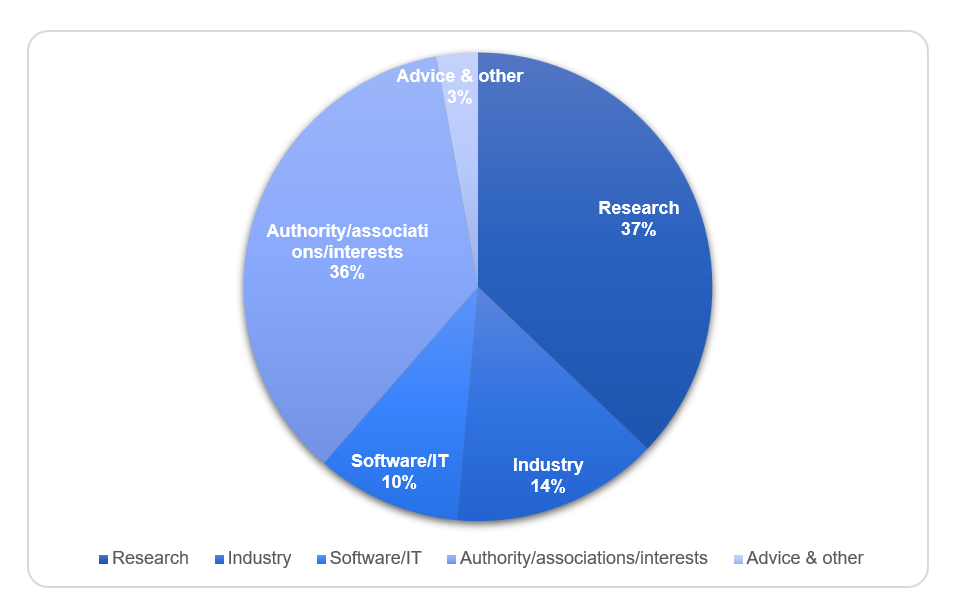On November 22, 2023, the Austrian Federal Ministry for Climate Action, Environment, Energy, Mobility, Innovation, and Technology (BMK) organized with the industry association Industrie 4.0 Austria and the IEEE Technology Center for Climate (ITCC) a panel discussion on the Digital Product Passport. The thought-provoking event brought together experts from the European Commission, UNIDO, research and practitioners representing different industry areas and 80 participants who engaged in discussions about the Digital Product Passport, its current stage and future, impact on value chains and the industry, the role of international cooperation and standards, with use cases from different industry sectors. The event provided a platform for insightful conversations surrounding the framework’s significance in fostering sustainable practices and circularity.
Digital Product Passports (DPP) will offer a set of structured product-related data, accessible electronically through a unique identifier, to provide reliable information related to sustainability, circularity, value retention for re- use, remanufacturing, and recycling. The aim of DPP is to increase product lifetime, compliance and eventually increase trust from the general public about the product they use and support the transition to a circular economy.

After introductory remarks from Clara Neppel, Head of ITCC, and Michael Wiesmüller, Head of Section at the Austrian Federal Ministry, Ilias Iakovidis, Adviser at DG CONNECT, European Commission, provided an outline of the Digital Product Passport’s scope within the European sustainability transition, emphasizing its role in the green and digital transformation in Europe.
Material Traceability and Ecodesign:
Iakovidis highlighted the pivotal role of material traceability within the broader Ecodesign Framework. The Digital Product Passport, he emphasized, is a keystone for expediting Europe’s transition towards sustainable and circular business models. Batteries are set to be the pioneers, with Digital Product Passports expected to debut in 2027, paving the way for other key product value chains.
Markus Gerschberger, Deputy Director of the Supply Chain Intelligence Institute Austria, shed light on global supply chains, emphasizing the significance of initiatives such as the Supply Chain Transparency Act and the Digital Product Passport. He addressed the challenges and opportunities associated with enhancing transparency in global supply chains.
Holger Berg, Vice Director of Circular Economy at Wuppertal Institut, explored the concept of a circular economy as a networked system and discussed the Digital Product Passport’s role within emerging supply chain models.
Standardization and International Collaboration:
Presenters, including Maike Luiken (IEEE), Eugen Sehorz (GS1 Austria), and Ana Paula Nishio De Sousa (UNIDO), underscored the role of standards in sustainability and the importance of international collaboration in developing the digital product passport.
Opportunities and Challenges:
Tassilo Pellegrini from the Technical University St. Pölten presented a report commissioned by BMK on the technical, legal, and organizational requirements for a Digital Product Passport capable of accommodating diverse products, industry sectors, and stakeholders.
Case Studies:
Post-break, case studies were presented on digital product passports for batteries (Veronika Siska, AIT), textiles (Günter Grabher, Smart-Textiles Platform Austria), and the automotive industry (Pascal Mast, TÜV Süd). Carolynn Bernier introduced CIRPASS, a collaborative consortium preparing the groundwork for the Digital Product Passport, and Michael Heiss shared insights into Siemens AG’s implementation of the Digital Product Passport.
Discussions with the panel highlighted the potential of the Digital Product Passport to revolutionize industries, promote sustainability, and foster international collaboration. The Digital Product Passport is poised to play a central role in reshaping the future of product lifecycle management, fostering circularity and sustainability.


